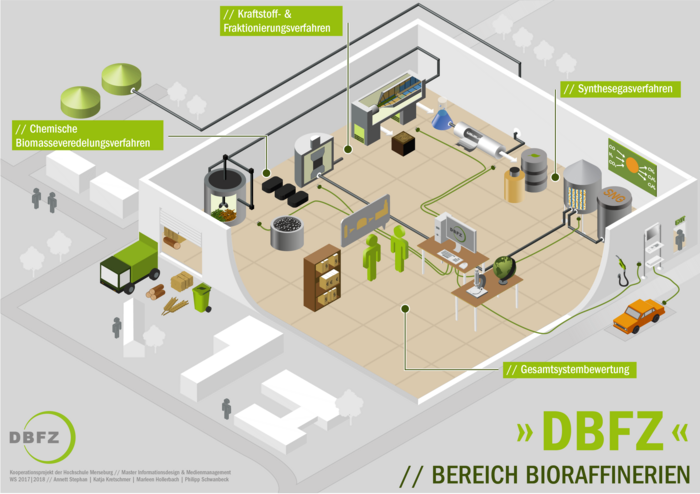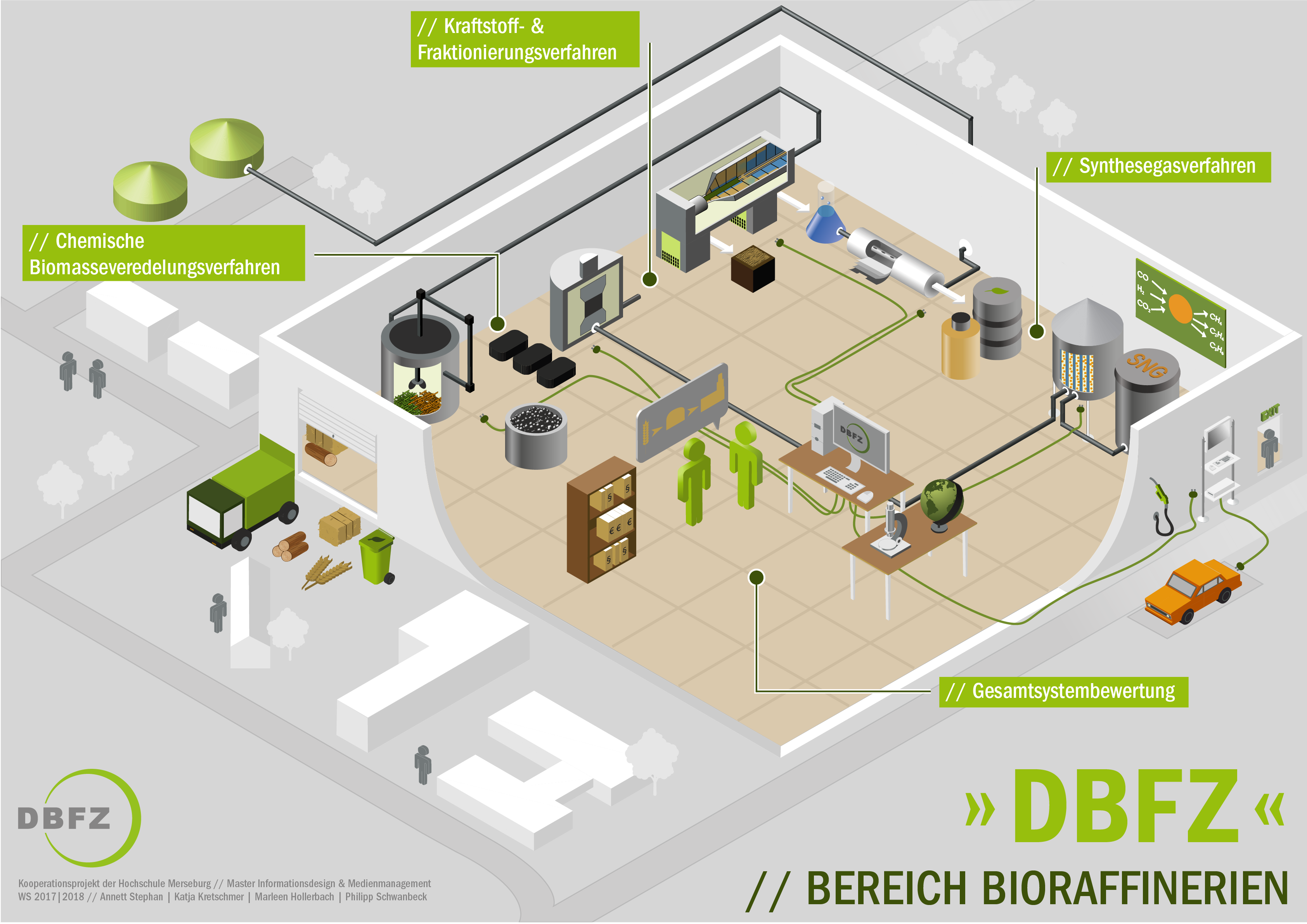Biobased Products and Fuels
"Bioeconomy is a central building block for a sustainable, climate-neutral circular-flow economy. Our contribution to this includes the research and development of innovative and competitive technologies for bio-based products and fuels."
Dr. Franziska Müller-Langer, Head of the research focus area
Background
Research into biorefineries focuses on the complete use of the biomass used and the production of high-quality products and intermediates from all components. Biofuels, food and feed, intermediates or other substances are already produced in biorefineries as by-products. In addition, the gradual further development of biorefineries offers great potential for the targeted use of limited biomass in areas where renewable electricity can only provide very expensive solutions. Corresponding technical advancements and innovations are indispensable for this.
Objective
Against this background, the biorefineries department is focusing its research on biobased products and fuels. The overriding goals are:
a. Development and application of bioenergy sources for transport and industry
b. Development of innovative and competitive biobased processes and products
c. Development of biorefinery concepts as part of closed material cycles
Important reference projects (Selection)
- BIO2HY – Wasserstoff aus Biomasse, Federal Ministry of Food and Agriculture, 01.04.2021 - 31.03.2022 (FKZ: 2221NR010A)
- BIOFIT – Bioenergy retrofits for Europe’s industry, European Commission, 01.10.2018 - 31.03.2022 (GA 817999)
- HTKkChem – Umwandlung von wasser- und kohlenhydratreichen Reststoffen der Biomasseverarbeitung in Chemikalien und Kraftstoffkomponenten durch hydrothermale Prozesse, Federal Ministry of Education and Research, 01.11.2018–31.12.2022 (FKZ: 031B0674A)
- NormAKraft – Normung alternativer Kraftstoffe, Federal Ministry for Economic Affairs and Climate Action, 01.01.2020–31.12.2022 (FKZ: 03ElV241C)
- Wachstumskern abonoCARE – TP 2.V – Entwicklung der säure- und membranbasierten Phosphorabscheidung während der HTC sowie der energieeffizienten Trocknung von HTC-Kohle im Labormaßstab, Federal Ministry of Education and Research, 01.04.2019–31.12.2022 (FKZ: 03WKDI2E)
Important publications (Selection)
- Dögnitz, N.; Hauschild, S.; Cyffka, K.-F.; Meisel, K.; Dietrich, S.; Müller-Langer, F.; Majer, S.; Kretzschmar, J.; Schmidt, C.; Reinholz, T.; Gramann, J. (2022). Wasserstoff aus Biomasse: Kurzstudie im Auftrag des Bundesministeriums für Ernährung und Landwirtschaft. (DBFZ Report, 46). Leipzig: DBFZ. III, 4-147 S. ISBN: 978-3-946629-88-7. DOI: 10.48480/b4wn-c154
- McDowall, S. C.; Braune, M.; Nitzsche, R. (2022). „Recovery of bio-based medium-chain fatty acids with membrane filtration“. Separation and Purification Technology (ISSN: 1383-5866), Nr. 286. DOI: 10.1016/j.seppur.2021.120430.
- Meisel, K.; Röver, L.; Majer, S.; Herklotz, B.; Thrän, D. (2022). „A Comparison of Functional Fillers: Greenhouse Gas Emissions and Air Pollutants from Lignin-Based Filler, Carbon Black and Silica“. Sustainability (ISSN: 2071-1050), Vol. 14, Nr. 9. DOI: 10.3390/su14095393.
- Nieß, S.; Armbruster, U.; Dietrich, S.; Klemm, M. (2022). „Recent Advances in Catalysis for Methanation of CO2 from Biogas“. Catalysts (ISSN: 2073-4344), Vol. 12, Nr. 4. DOI: 10.3390/catal12040374.
- Röder, L. S.; Gröngröft, A.; Grünewald, M.; Riese, J. (2022). „Demand Side Management in Biogas Plants: Dynamic Simulation of the Influence of Time-varying Agitation on Biogas Production“. Energy Proceedings (ISSN: 2004-2965), Nr. 27. DOI: 10.46855/energy-proceedings-10199
Next section: » SmartBiomassHeat


